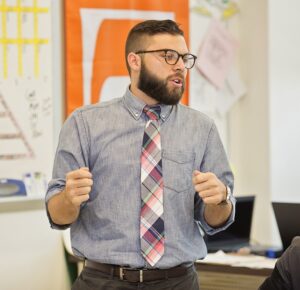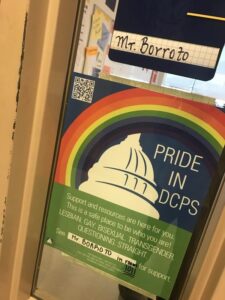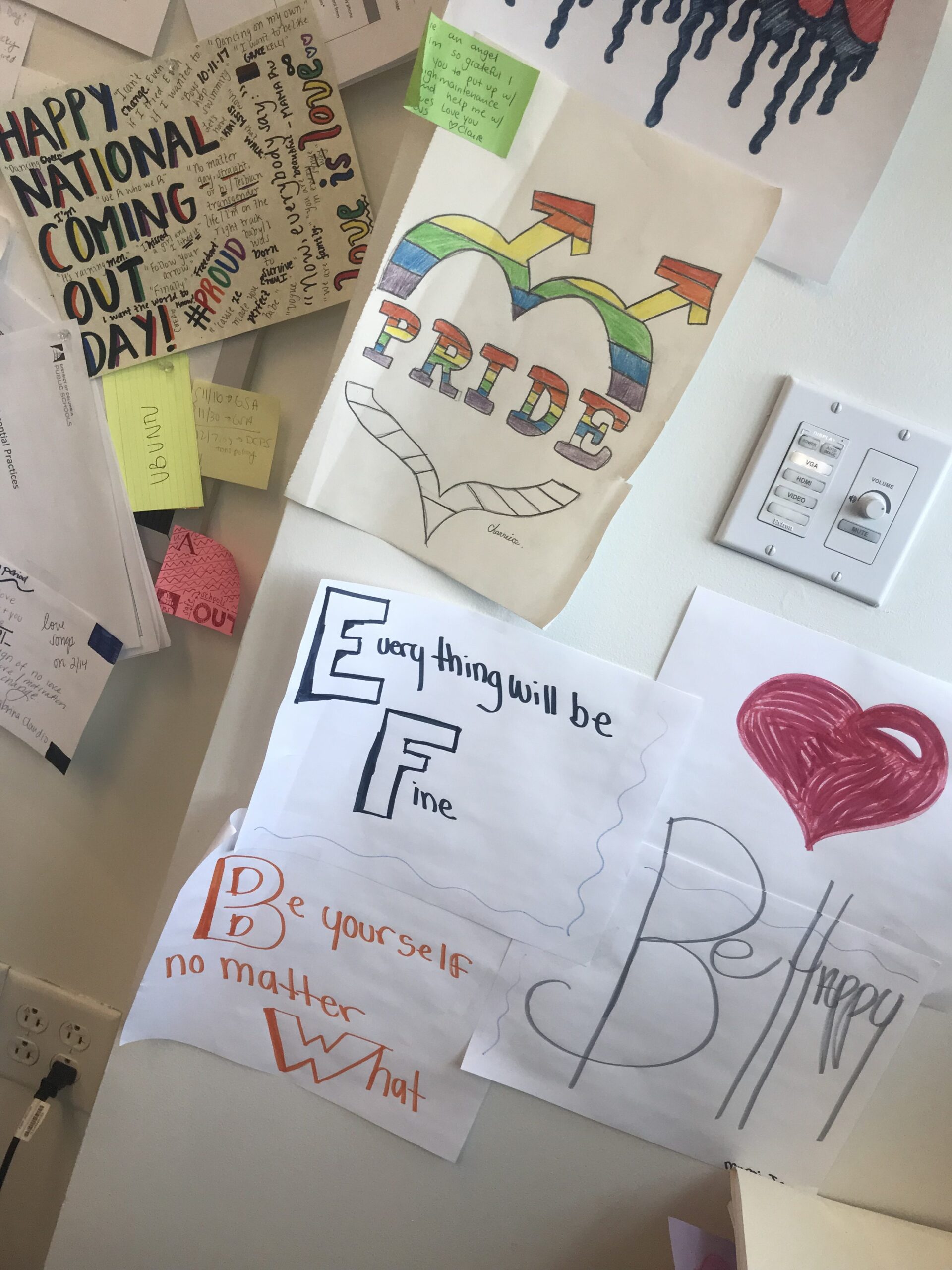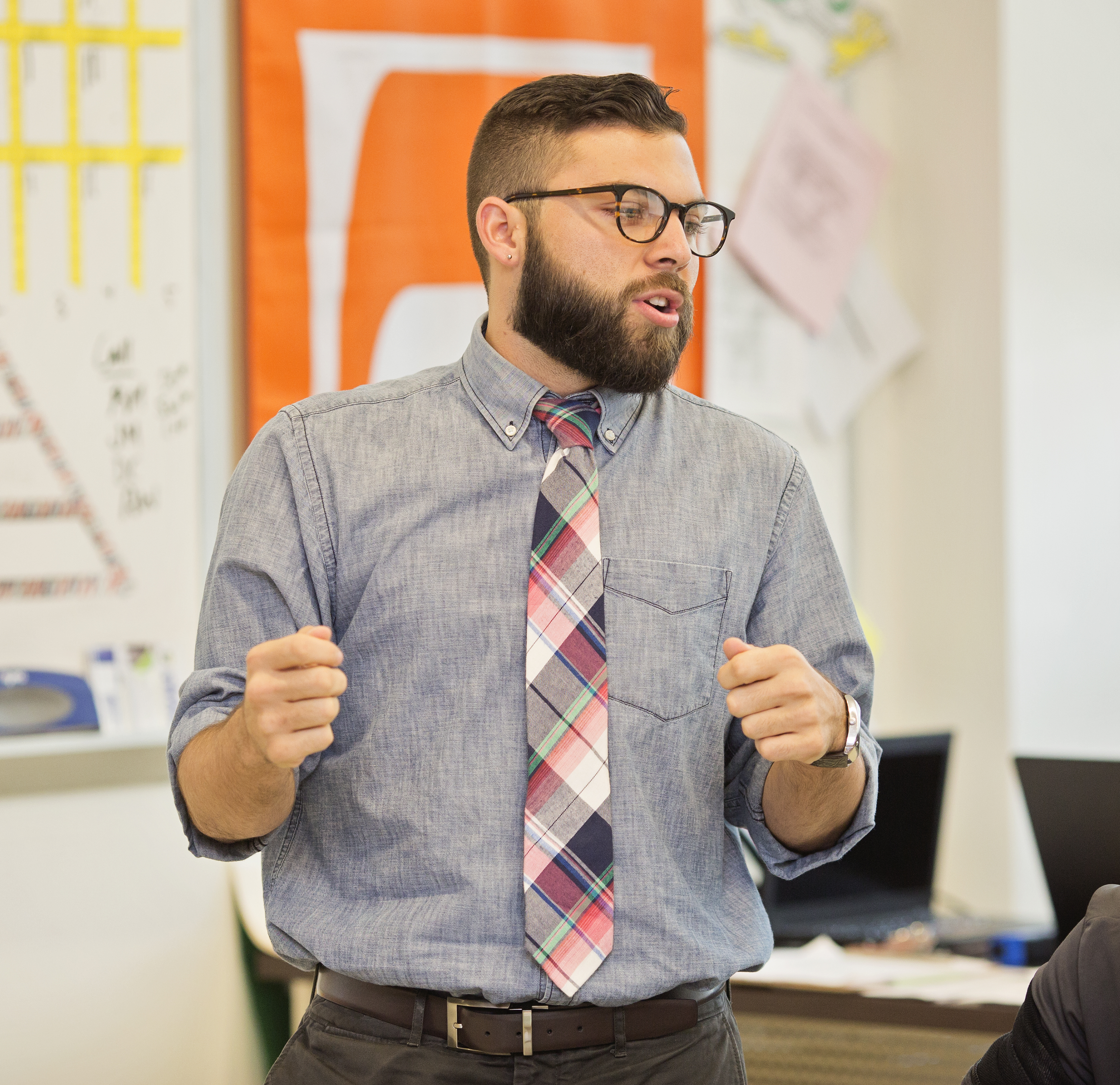This post was written by a past Bellwether intern. Read more about our internship program here.

photo courtesy of the author
When I became a teacher, it had been over five years since I first came out. In that time, I didn’t worry much about my sexuality. My friends and family overwhelmingly accepted me, my college campus made me feel safe, and the progressive nonprofit where I worked celebrated the ways that I was unique and different. But as I walked into a high school classroom as a teacher, all the scary feelings I once felt as a high school student came creeping back in. Would being gay hurt my relationships with students or their families? I resolved that I wouldn’t lead with the fact that I was gay, but I wouldn’t lie about it either.
It turns out that I didn’t need to worry. Throughout my teaching experience, I have had the opportunity to share my authentic self with students and facilitate conversations around sexuality and gender. I’ve shown my queer students how to love themselves and their peers how to be good allies. And on top of continuing to work as a classroom teacher, I’ve had the privilege of serving as my school’s LGBTQ Liaison, a position unique to DC Public School (DCPS).
Here are three lessons I’ve learned from my time in the classroom and as LGBTQ liaison:
High school is not how I remember it
As a closeted queer kid in high school almost 10 years ago, the idea of being out was scary. There were very few out students and absolutely no out teachers.
Things are getting better. While a 2015 survey conducted by GLSEN revealed that 60% of LGBTQ students reported frequently hearing words like “fag” or “dyke,” that number is down from 80% in 2001. So don’t get me wrong, discrimination hasn’t completely stopped, but I’m pleasantly surprised each time I watch a student be themselves boldly and unapologetically. LGBT students at my school are generally encouraged to be themselves, so much that our Prom King this year was openly gay.
Having an employer that protects your students’ and your own sexual orientation and gender identity is a blessing
I am ridiculously lucky to live and work in Washington, D.C. The District of Columbia’s Human Rights Act makes discrimination illegal based on 20 protected traits, sexual orientation and gender identity or expression being some of them. There are still 28 states where you can be fired simply for being gay. If I wasn’t equipped with this legal protection, I wouldn’t have the confidence to be myself around students or the freedom to have the important conversations I have with them each day.

photo courtesy of author
In addition to the legal protections that the District provides for teachers, DCPS takes it a step further with their Plan to Create an Inclusive School Community. This plan places trained liaisons in each middle and high school who are responsible for supporting LGBTQ students, staff, and families and implementing programs that make schools more safe and inclusive for students. DCPS also plans an annual “Leading with Pride” conference to build the leadership capacity of LGBTQ students and staff. Finally, DCPS has released clear guidance so that transgender and gender non-conforming students are protected in things like using their correct names, pronouns, and restrooms.
In the same 2015 survey, 64% of students who reported an incident of harassment or assault said that school staff did nothing in response or told the student to ignore it. Having trained adults responsible for creating inclusive schools is an essential step for making all students feel safe.
(If you’re looking for resources on how to be a good ally to students; incorporate LGBT-inclusive curriculum into your classroom; or create lesson plans on bullying, bias, and diversity, here’s one place to start.)
As much as I am there for my students, they are also there for me
On most days, being an out gay teacher goes really well. My heart beams when students feel safe enough to come out to me. I am appreciative when one of my students says “fag” by accident but then looks at me in horror and genuinely apologizes: “Mr. B, I am so sorry. My bad.” I know I’ve gotten through to them when a new student comes into my class using disrespectful language and my other students correct them: “Mr. B doesn’t like it when we use those words.” I’m proud of the conversations we have and the safe environment that we’ve created together.
But kids are kids, and no one is perfect. There are some days where being out can backfire.
On one particular day, a group of students decided they wanted to cause trouble. In an attempt to disrupt class, they mumbled what sounded like “faggot” and “AIDS” under their breath as they threw paper and other objects across the room. As much as I tried to keep my cool and get the situation under control, they could all see it wasn’t working: I was visibly defeated. I wasn’t mad, I didn’t raise my voice, but I was visibly sad. After the bell rang and students filed out for lunch, one of my students came up to me and gave me something she had drawn: “Everything will be fine. Be yourself no matter what. Be happy.”

photo courtesy of author
I will never forget her empathy on that day. I work so hard to make my class safe for kids, but when class didn’t feel safe for me, she did what she could to make it better.
I look forward to continuing to be a safe space for students and soaking in everything that they have to teach me. Happy Pride Month!
